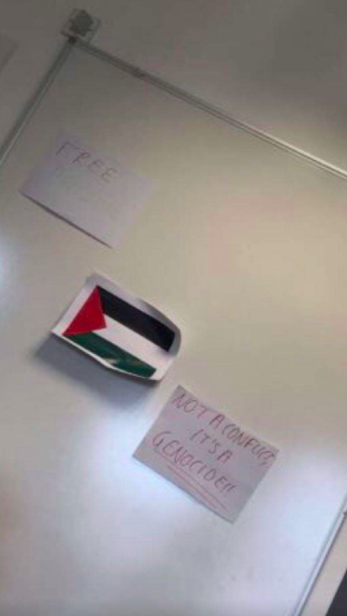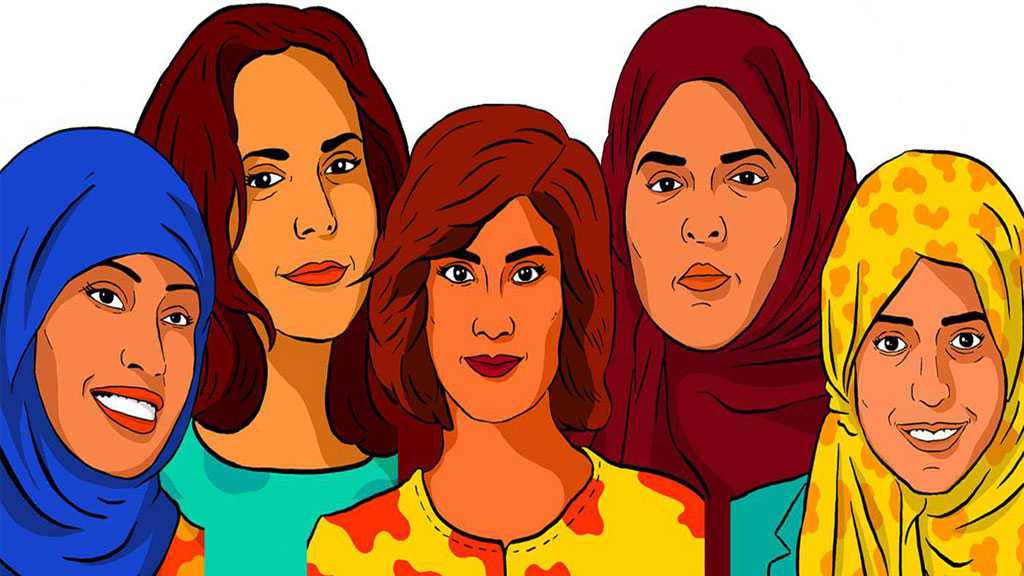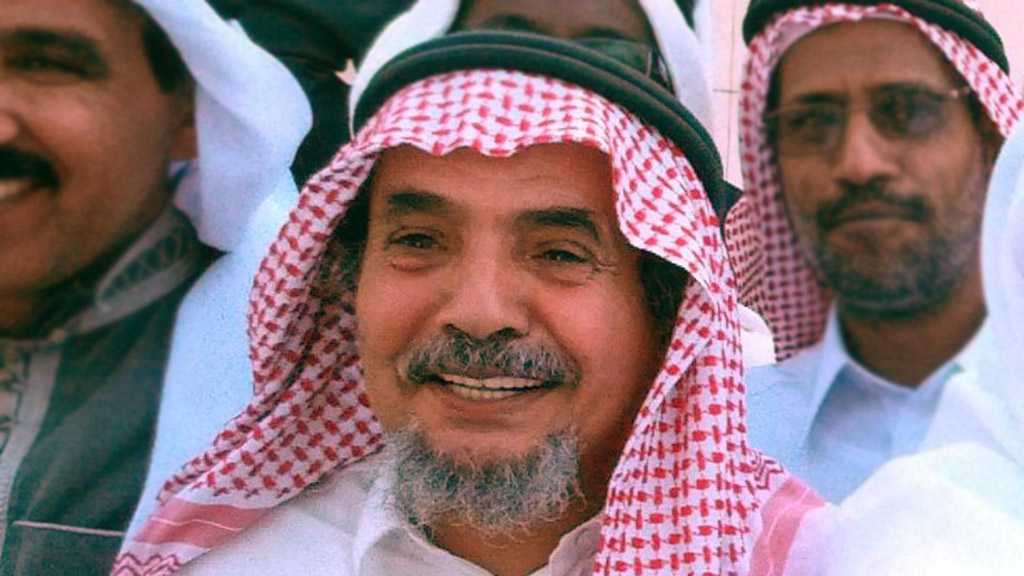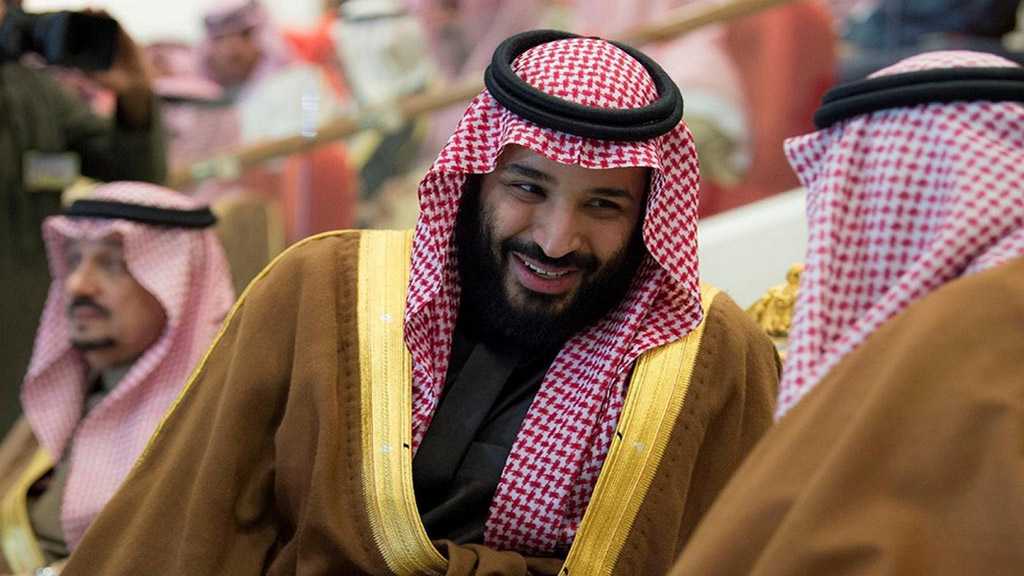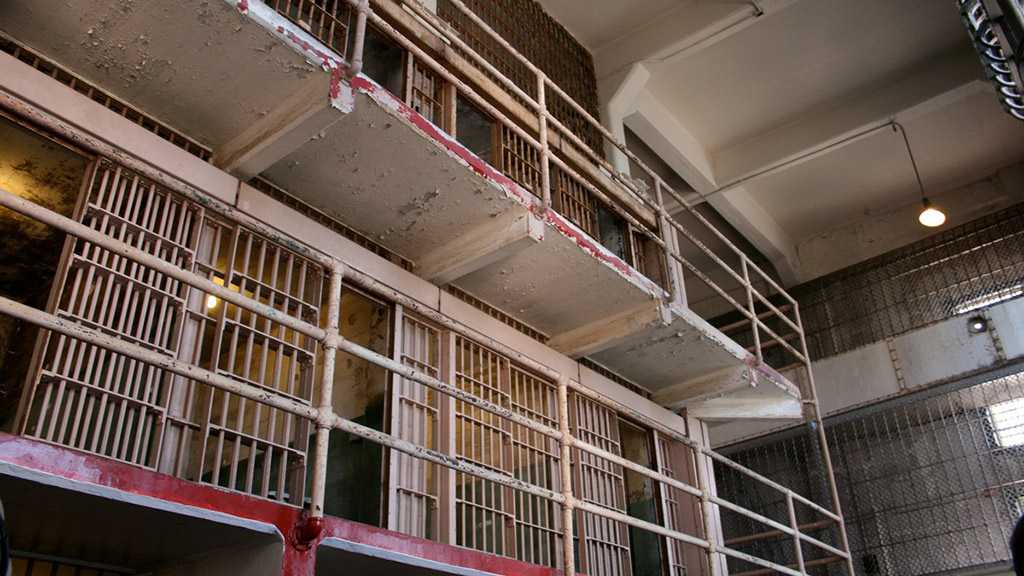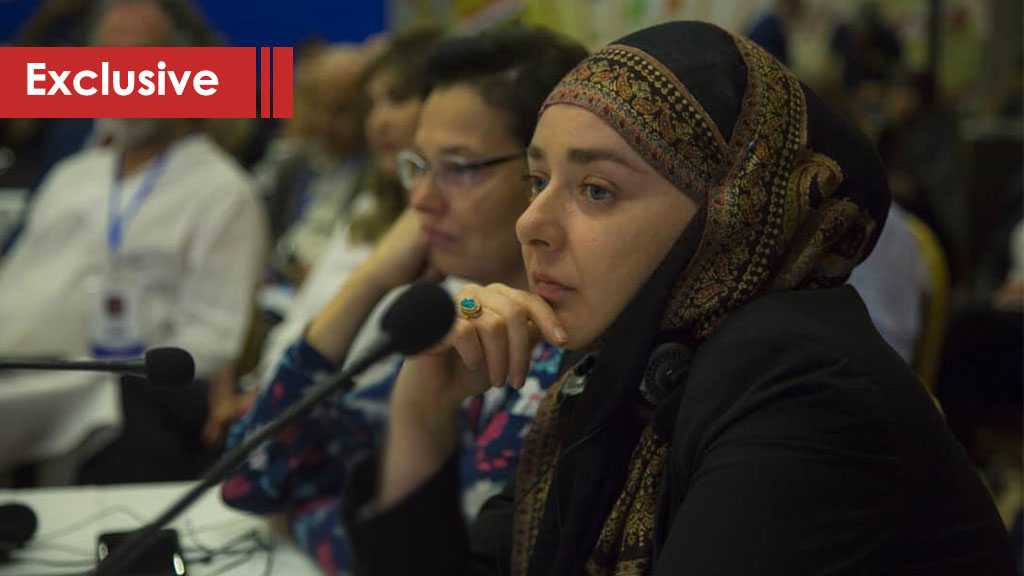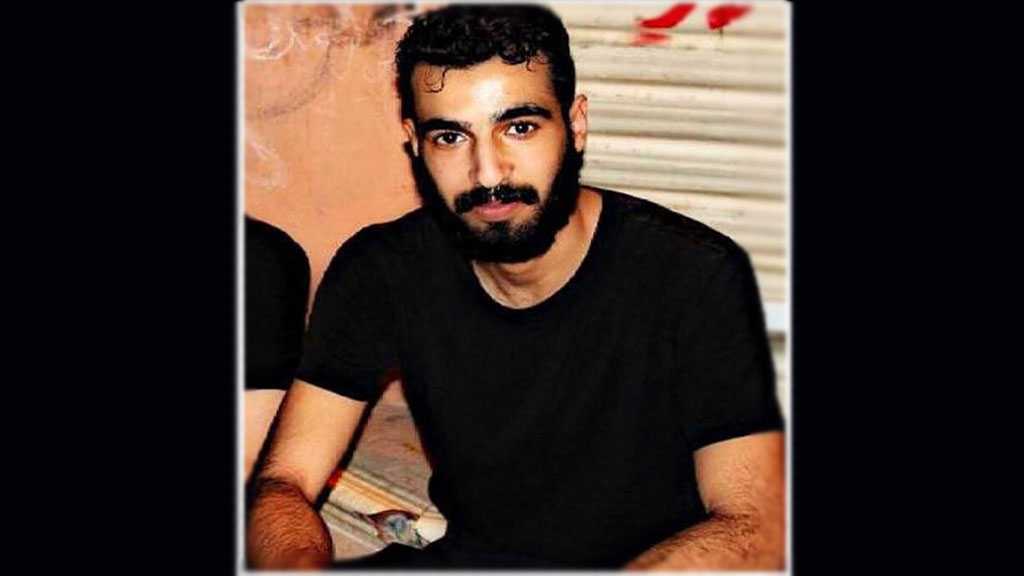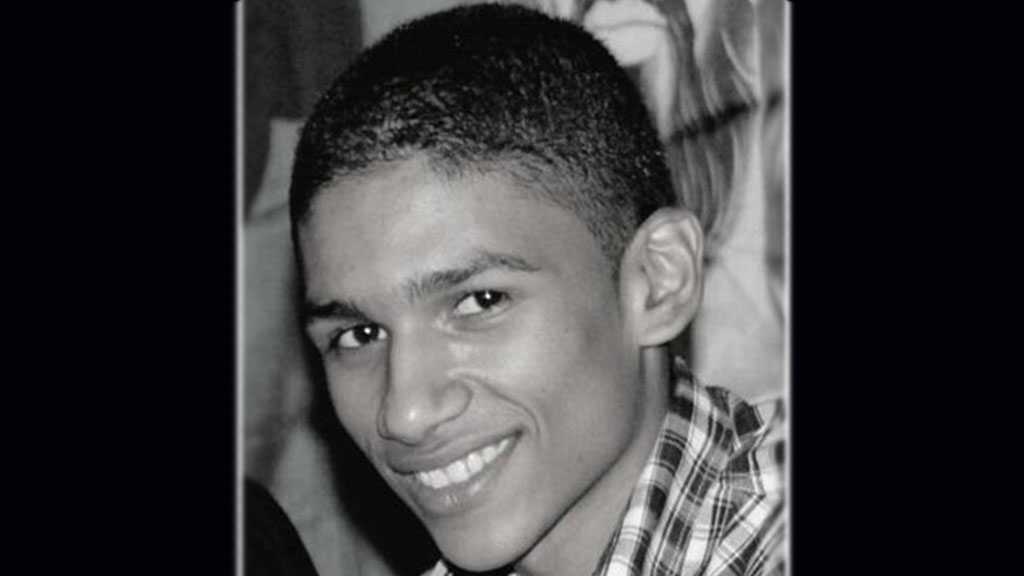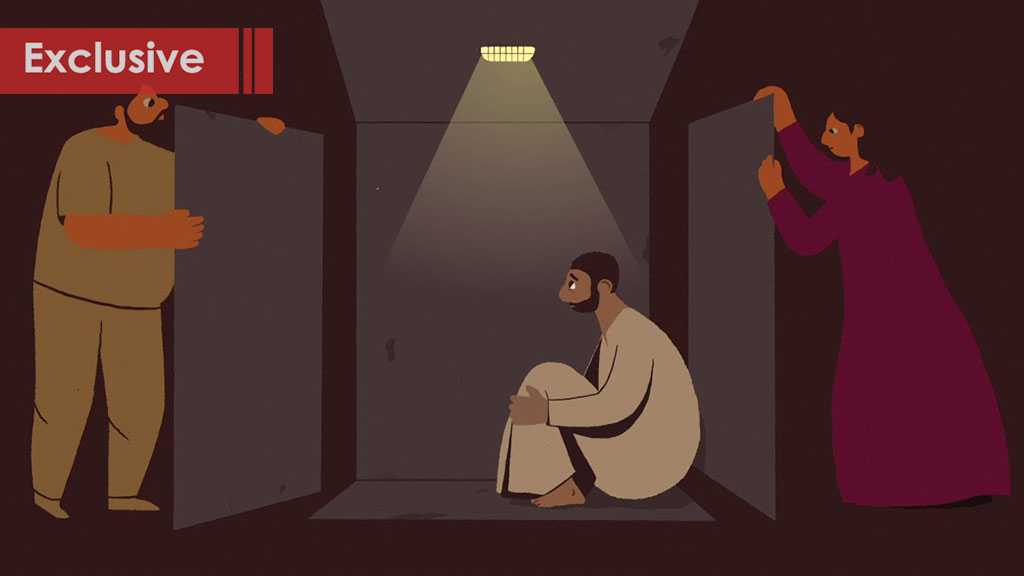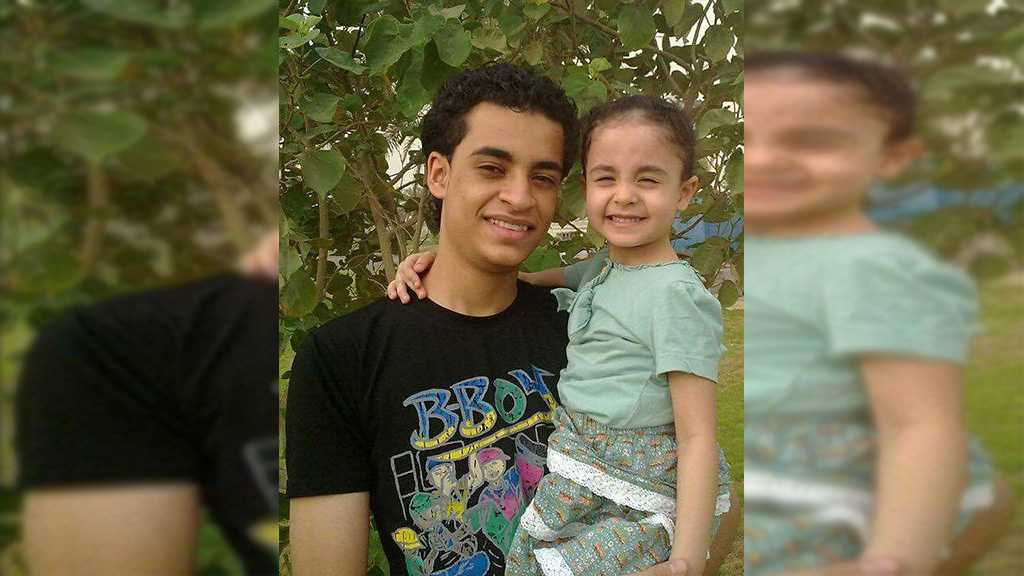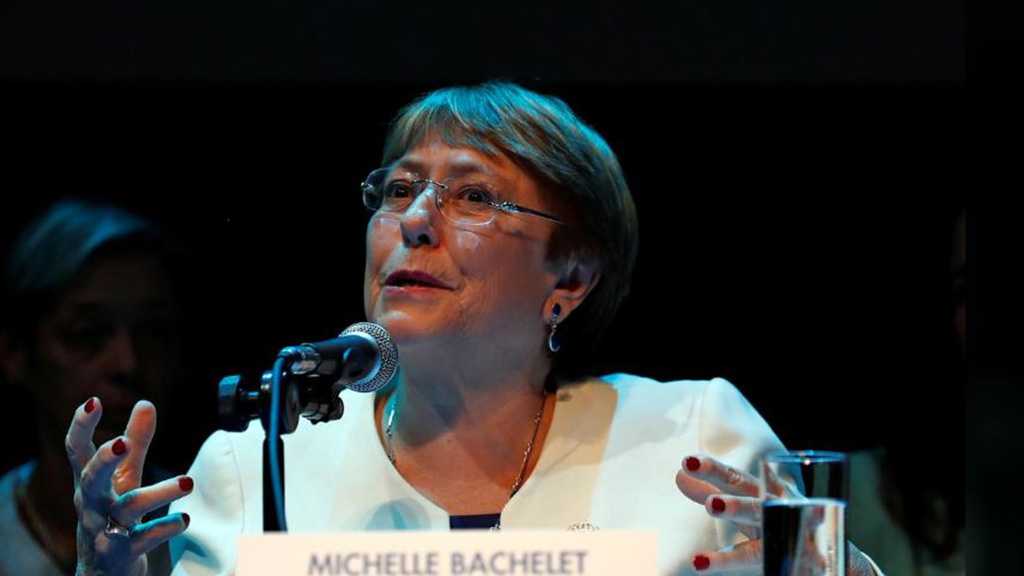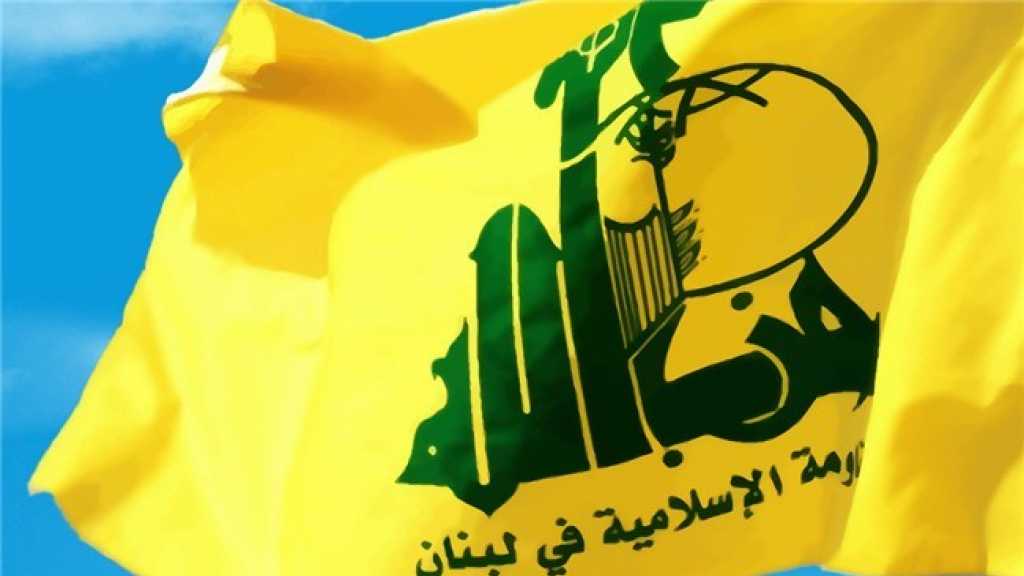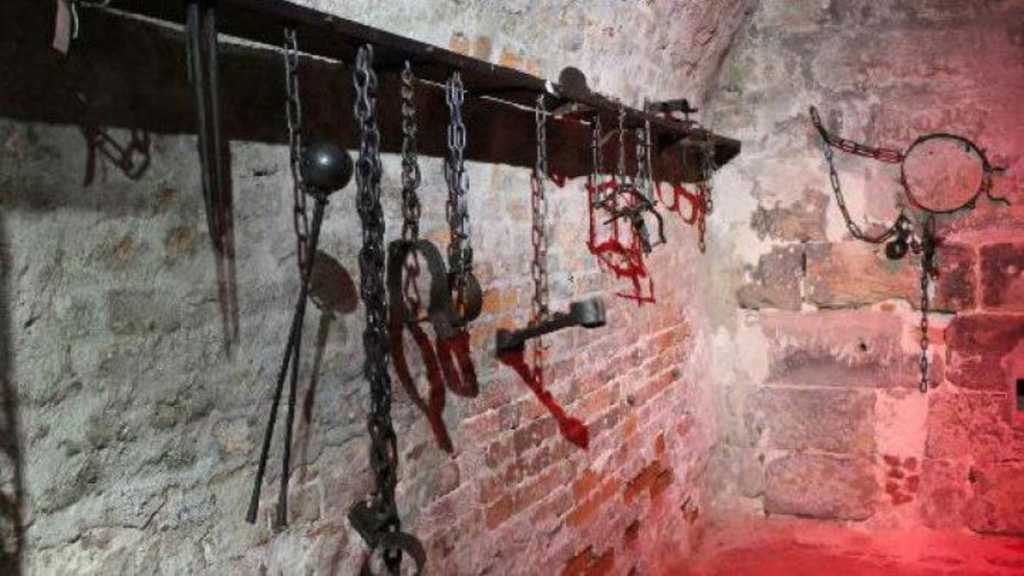The Saker
June 13, 2019

[This interview was made for the Unz Review]
Introduction by the Saker:
For a while now we have been lucky enough to have a wonderful Iranian member of the Saker community writing analyses for the Saker Blog: Aram Mirzaei has brought a wealth of expertise and priceless insights into Iran and everything Iran-related. Clearly, after the DPRK, Syria and Venezuela – Iran is now the target of Trump’s ignorant hubris and threats and it is therefore extremely important to debunk of AngloZionist propaganda about Iran and its role and actions in the Middle-East. This interview with Aram Mirzaei is just the first step of a major effort by the Saker community to report more often about Iran. Expect much more in the near future. In the meantime, I will let Aram introduce himself and then reply to my questions.
The Saker
——-
My name is Aram Mirzaei, I’m 30 years old and live somewhere in Europe. Originally, I hail from western Iran, a place that is deeply rooted in my heart. Ever since my teenage years, I’ve had a passion for history and politics, a trait I inherited from my mother who was an Iranian revolutionary. Naturally, this passion made me choose to study political science all the way up to my Master’s degree. Having supported my country against foreign threats my entire adult life, I became an activist for the Resistance Axis when the Syrian War broke out in 2011 and have combined my passion for writing and politics, to contribute to the propaganda fight that runs in parallel with the fighting on the ground. Thus, I have endulged myself in anything related to Iran, in an effort to have a complete understanding of the land that I was born in and where my forefathers once dwelled in. Aside from these interests, I also love philosophy, sociology, religion, football (soccer) and trading, with a specific focus on crypto currencies.
The Saker: Please explain what an “Islamic Republic” is and how it is different from any other republic? What makes the Iranian political system unique? How democratic (vs theocratic) is it? Do you consider Iran to be a democratic country (in the sense that the will of the people is the highest, sovereign, authority)?
Aram Mirzaei: These are very relevant questions as this issue is something most outsiders have a hard time understanding. Growing up in the West, I myself had a hard time understanding this system until I read Imam Khomeini’s manifesto: Islamic Governance – rule of the jurisprudence. Here, Khomeini offers a very unique viewpoint and insight into his ideas of a modern Islamic form of government. Khomeini views the Western democratic system as a foreign way of governance, not suited for Muslim countries, while he also correctly identifies the deep flaws within the contemporary Islamic forms of governance, that they are outdated monarchies prone to corruption and decadence.
Simply put, Khomeini offers a compromise between Western Democracy and Islamic Sharia law. To understand this form of government, one must understand the background of Shia Islamic scholarship and the theological debate regarding Islamic government. As many already know, modern Twelver Shia faith rest on the pillar of the Occultation, the belief that the messianic figure, also known as Mahdi, who in Shia theology is the last (Twelfth) infallible male descendant (Imam) of the prophet Mohammad, was born but disappeared, and will one day return and fill the world with justice and peace. In this time of post-Occultation the theory of Velayat-e Faqih (Rule of the Jurisprudence), holds that Islam shall give a Faqih (Islamic jurist) custodianship over the people, in the absence of the Hidden Imam.
The doctrine of Velayat-e Faqih has been an issue that has divided the Shia Islamic scholars between the ideas of a so called Limited Guardianship and an Absolute Guardianship of the jurisprudence. Traditionally, Limited Guardianship has been the dominant interpretation where Mujtahids (Islamic scholars) have left secular power to the monarchs while the Ulema’s (clerical class) role has been limited to non-litigious affairs. This interpretation holds that the Ulema should only assume an advisory role to the monarch who is responsible for the task of protecting the country. For centuries, especially during the time of the Safavid Shahs, Iran was ruled this way, with the Ulema assuming an advisory role in the royal court of the Shahs. Only during the Pahlavi dynasty of the 20th century did this begin to change as Reza Shah Pahlavi, initiated radical secular changes to the Iranian society as a whole.
The idea of Absolute Guardianship hails from the belief that collective affairs fall under the Guardianship of the Islamic Jurist. Before Khomeini, there had been a few scholars arguing for Absolute Guardianship, yet none of them gained the amount of influence as Khomeini did. He presented the concept as necessary to protect and preserve Islam during the Occultation of the Imam. According to Khomeini, a society should be governed by those who are the most knowledgeable about Islamic law, this is his main argument in what an Islamic Government actually is. In his manifesto, Khomeini argues that monarchy is un-Islamic. In a true Islamic state, those holding government posts should have knowledge of Sharia, as well as having intelligence and administrative ability. Thus the monarchy becomes redundant in such a governing system, paving the way for a Republic to take its place instead. Specifically Khomeini argued that the un-Islamic government “though it may be made up of elected representatives does not truly belong to the people” in the case of Muslim countries.
Where Shia Mujtahids have tended to remain outside the active political sphere, Khomeini argues that leading Mujtahids also have inherited the Prophet’s political authority by explicating several ahadiths of the Shia Imams. An example is his analysis of a saying attributed to the first Imam, Ali who in addressing a judge said:
“The seat you are occupying is filled by someone who is a prophet, the legatee of a prophet, or else a sinful wretch.”
Khomeini reasons that the term judges must refer to trained fuqaha (jurists) as they are “by definition learned in matters pertaining to the function of judge” , and since trained jurists are neither sinful wretches nor prophets, by process of elimination “we deduce from the tradition quoted above that the fuqaha are the legatees.” He explains that legatees of the prophet have the same power to command Muslims as the Prophet Muhammad and (in Shia belief) the Imams. Thus, the saying, `The seat you are occupying is filled by someone who is a prophet, the legatee of a prophet, or else a sinful wretch,` demonstrates that Islamic jurists have the power to rule Muslims.
According to the constitution of Iran, an Islamic republic is defined as a state ruled by the Fuqaha. In accordance with Qur’an and on the basis of two principles of the trusteeship and the permanent Imamate (bloodline of the Prophet), it is counted as a function of the jurists. Also it is explained that only the jurists that are upright, pious and committed experts on Islam are entitled to rule . Also those who are informed of the demands of the times and known as God-fearing, brave and qualified for leadership. In addition they must hold the religious office of Marja (the highest rank in the Shia clerical establishment) and be permitted to deliver independent judgments on general principles (fatwas). The Marja has only the right to rule the Islamic Republic for as long as the Twelfth and final Imam remains in Occultation.
In this sense, the Islamic Republic of Iran is unique in comparison to other so called “Islamic Republics” such as Pakistan and Afghanistan as they are governed by secular constitutions and are only Islamic Republics by name rather than in practice.
In both theory and practice, the Velayat-e Faqih differs radically from any other form of government, both Western and Eastern models.
Whether or not this system can be considered “democratic” is really a subjective matter. I personally dont like the contemporary opinions on what constitutes a democracy as they are very much formed and dictated by Western ideas and standards. The generally accepted tools of measurement on democracy in the world follow liberal democratic criteria formulated by liberal thinkers and scholars. This narrows down countries into liberal democracies, so called true democracies and non-liberal democracies, also known as “flawed democracies” in their world view.
As I mentioned earlier, the Islamic Republic is a compromise between Western democracy and Islamic theocracy, which makes it hard to compare to the western notion on what constitutes a democracy, and since there aren’t any other Islamic Republics to compare it to, it makes it even more difficult to measure how democratic it is. But let’s begin by stating the obvious, the Islamic Republic is a republic, which means that the state belongs to the people and not a ruler. The Supreme Leader, or Rahbar Enghelab (Revolutionary Leader) is not a monarch and the title is not hereditary.
Lawmakers are directly elected by the people, as is the President as well. The Iranian elections are considered not “free and fair” by western standards due to the vetting process by the unelected Guardian council, but this is where the theocratic nature of the Islamic Republic becomes prevalent, as the vetting process is important for the elimination of anti-Islamic elements in the government. Another point of confusion is the role of the Supreme Leader, a role that many outsiders have misunderstood. The truth is that while the President rules the government and politics of the country, the Supreme Leader’s role is one of oversight. Think of the Supreme Leader as the U.S Supreme Court, where the Supreme Leader has a duty to uphold the Islamic Republic’s core values, much like the Supreme Court in the U.S upholds the constitution.
The Supreme Leader is chosen by the elected institution called the Assembly of Experts, which is tasked with overseeing the performance and activities of the Supreme Leader. The Assembly of Experts also has the power to impeach a Supreme Leader if needed, thus not even the Supreme Leader is untouchable. The Supreme Leader in turn then elects the members of the Guardian Council who are responsible for the vetting I mentioned above. So you can see that the Islamic Republic is a system filled with checks and balances between elected and unelected institutions.
The Saker: Wikipedia (hardly a trustworthy source) has this picture of the Iranian government structure:
Is it correct?
Aram Mirzaei: I would say that this depiction of the Iranian government structure is not exactly inaccurate, but it also fails to offer a comprehensive picture of the checks and balance system that plays a huge part in Iranian politics. This depiction focuses a lot on who is elected and who is not, instead of focusing on the different branches of government and their roles. Let me explain: The Supreme Leader as mentioned above is a superintendent, who oversees the Executive and Judiciary branch, while he also acts as commander of the Armed Forces of the Islamic Republic. The Supreme Leader in turn is appointed by the directly elected Assembly of Experts which is made up of 88 Mujtahids, and as I mentioned before, the Assembly of Experts has the power to remove him if necessary.
The Parliament and the President are directly elected by the people. While the President chooses his cabinet, the Parliament is responsible with electing 6 out of 12 members of the powerful Guardian Council, these 6 members are nominated by the Head of the Judiciary, who in turn is appointed by the Supreme Leader. These 6 members are non-clerical jurists while the other 6 members appointed by the Supreme Leader are faqihs.
The Guardian Council, acts as an upper consultative assembly. It is charged with interpreting the Constitution of the Islamic Republic, supervising elections of, and approving of candidates to, the Assembly of Experts, the President and the Parliament. Any laws made by the parliament must be approved by the Guardian Council.
The Expediency council is an advisory assembly set up in 1988 to act as an intermediary between the Parliament and Guardian Council whenever conflicts occur. It is directly appointed by the Supreme Leader.
The Saker: The western media always loves to think in terms of “hardliners” and “liberals” in each country they don’t control. To what degree are these categories applicable to Iran?
Aram Mirzaei: The terms as you say, is a way for the Western media to simplify the different categories of political movements in Iran. I would rather say that a better way of dividing the political spectrum in Iran is to say that there are Reformists and Conservatives. While the term “conservative” is difficult to apply on Iranian society, the existence of a conservative movement, or as they prefer to be called, Principalists, is a reality. The Iranian political spectrum can somewhat loosely be defined as a division between the Islamic left (Reformists) and the Islamic right (Principalists).
The Iranian Principalist bloc of today emerged as a response to the rising power of the reformist movement, headed by known figures such as former Iranian President and cleric Mohammad Khatami and to some extent former President Ayatollah Akbar Hashemi Rafsanjani, one of the richest people in the country. Iranian principalism however dates further back in history. It roots back to the early 20th century with the constitutional revolution, which demonstrated the power of the clerical class as the Qajar dynasty was disposed by Reza Khan (later Reza Shah Pahlavi), a man who clashed many times with the clergy. The Shah had initiated a set of reforms aimed at modernizing the country. Along with this modernization effort the Women’s Awakening movement gained strength. This movement sought the elimination of the traditional Iranian chador from Iranian society. This movement was backed by the Shah who sought inspiration from western clothing for his society. The religious establishment were fiercely opposed to this and organized protests against obligatory Western dressing in Mashhad, resulting in the Shah ordering his soldiers to shoot at the crowds protesting.
The policies of Mohammad Reza Shah Pahlavi, the son and successor of Reza Shah Pahlavi, further sowed division between the clergy and the royal court. The young Shah’s role in the 1953 coup against the democratically elected Prime Minister Dr Mohammad Mossadeq, the failed “white revolution” which only served to further accelerate his unpopularity. Once more the clergy assumed the position of anti-imperialists in the Iranian political spectrum, arguing that the Shah was a dictator put in place by a non-Muslim Western power, the United States. As witnessed several times before, the clergy and the powerful merchant class, the Bazariis played a crucial role in forming the Iranian political landscape, this was also the case in 1979 when the clergy and the merchants came together to overthrow the monarchy.
The Islamic revolution in Iran brought about a total change to the political landscape of Iran as Iranian politics was now contained within an Islamic framework, free from foreign meddling, imperialism and dependency. This is the platform which the modern Principalist movement still use in their political campaigns.
Principalism focuses on broad conservative principles: loyalty to Islam and the Revolution, obedience to the Supreme Leader, and devotion to the principle of Velayat-e Faqih.
This set of principles implicitly endorses the status quo and the current power structure. It is also a response to the reformist parties’ emphasis on change: free elections, freedom of the press and assembly and individual rights, and, implicitly, curbs on the almost unlimited power of the Supreme Leader, and limits on the authority of the Guardian Council to disqualify candidates for elective office.
The Principalists include dozens of small cliques and political organizations each centred around a limited number of politicians, activists, clerics, and members of parliament and state institutions.
The conservatism of these groups varies too. They fall generally into four categories:
- Traditional conservatives may stand firm on social issues, such as Islamic dress for women and bans on gender mixing. But they are more open to possible reconciliation with centrist reformers, albeit with many caveats.
- Another group of new conservatives cares less about social issues, but they are closely aligned with the Islamic Revolutionary Guard Corps (IRGC) military-security nexus whose influence has grown markedly in recent years.
- A third conservative wing is closely allied to the bazaar merchants, importers, and shopkeepers.
- A fourth branch, championed by former Ahmadinejad supporters, is populist in temperament and intent.
In their drive for unity, almost all the conservative politicians now label themselves “Osul-garayan”, or “Principalists.”
The reformist era of Iran is generally accepted to have occurred between the years 1997-2005, during President Khatami’s two terms in office.
Khatami and his allies were the remnants of the Islamic left faction, hardliners who from 1979 to 1989 were the driving force behind many of the Islamic Republic’s signature policies. Domestically this included violently eliminating the political opposition to the Islamic Republic, enforcing strict Islamic morality through revolutionary committees and nationalizing Iran’s economy. They were behind the seizure of the US embassy in Tehran and were instrumental to the founding of Hezbollah in Lebanon. In the first decade of the newly found Islamic Republic they had been strongly backed by the Vali-e Faqih or Supreme Leader Ayatollah Ruhollah Khomeini and governed through the Executive under then Prime Minister Mir-Hossein Mousavi (1981-1989).
Between 1988 to 1991, with the end Iran-Iraq War, the fall of the Soviet Union and the death of Ayatollah Khomeini, political stabilization of the state through social change, the Islamic left’s fortunes rapidly declined. Firstly the end of the war put an end to the state of emergency under which the Islamic left exercised their influence. Secondly, the collapse of the Soviet Union delegitimized the statist economy which had been used to govern the Iranian economy in the first decade of the Islamic Republic. Thirdly, the passing of Ayatollah Khomeini, the staunch backer of the Islamic left was a huge blow to their political power.
Their rivals, the Islamic right faction, capitalized on this by selecting their own Ayatollah Ali Khamenei as the new Supreme Leader and Rafsanjani as president, eliminating the Premiership from the constitution, veto-ing Islamic left election candidates through the Guardian Council, purging them from unelected state institutions, and more. Having been eliminated from the system, the Islamic left entered a period of retreat in which it reassessed its place in the Islamic Republic. They emerged from this process “reformed”, the namesake of their faction.
After having lost their standing in the Islamic Republic’s powerful non-elected institutions, the newly formed Reformists under Mohammad Khatami regained political power by appealing to Iran’s restless segments of society yearning for change, and channel popular frustration through elected institutions.
In an interview with the Rah-e No newspaper in 1998, Reformist theoretician Saeed Hajjarian characterized this strategy for achieving their goals as “pressure from below, negotiations from above.” The barren political landscape in Iran during the 1997 presidential election, including the lackluster Islamic right candidate Nateq Nouri, and the tacit support of Rafsanjani who by this time had distanced himself from Khamenei and the Islamic right, resulted in a landslide victory for Khatami.
The initial shock of Khatami’s electoral victory did not faze the Islamic right who rallied under the banner of “preserving the principles of the revolution”, thus rebranding themselves as the Principalists.
The reformists won the Majlis elections of 2000, and Khatami was re-elected in 2001, the Principalists however were able to effectively block them through institutional obstructionism. In the 2004 Majlis elections, many prominent Reformist politicians were deemed unfit to stand for office by the powerful Guardian Council, an appointed and constitutionally-mandated 12-member council that wields considerable power and influence in the Islamic Republic. This strategy crippled the pillars of Reformist theoretician Hajjarians strategy of “negotiating from above”, by excluding them from political institutions.
While the first incarnation of Hajjarian’s “pressure from below, negotiations from above” had failed, it was reinvented by the 2009 election campaign and its aftermath. By conducting an electrifying electoral campaign and using social media, Reformists would use the deep discontent that had built up during Ahmadinejad’s four years in office among certain segments of the population, and bring “pressure from below” by mobilizing this group onto the streets.
This gave Reformists a new weapon to wield against Principalists in case of perceived electoral irregularities, using popular pressure to overturn the election results, elect Mousavi as president and thus restore their ability to “negotiate from above”.
On June 12th, they used this weapon when the election results were announced in favor of the incumbent Ahmadinejad. While there were no actual evidence that proves electoral fraud, the widespread perception among certain segments of the Iranian population took to the streets en masse. This was made possible through the heavy use of social media by the Reformists. The Green movement, once more gave birth to Hajjarians “pressure from below, negotiations from above”.
It did however not take long until the “pressure from below” resulted in severe consequences for the Reformists as their movement most resembles the color revolutions of former Soviet bloc countries such as Georgia, Ukraine and Kyrgyzstan. In color revolutions one faction within a regime creates “pressure from below” by mobilizing popular energy and channelling it into “negotiating from above” and improves its own position in the regime, usually in the context of allegations of electoral fraud. While this strategy was successful up to a point in the semi-authoritarian former Soviet bloc, in Iran the Principalist faction and IRGC rapidly mobilized to crush the uprising. Through the act of applying popular pressure on the IRI, the Reformists had crossed a ‘red-line’ and from this point were effectively purged from the system, once again destroying their ability to “negotiate from above”.
The Saker: It is often said that the IRGC and the Basij are the Iranian “hardliners”. Is that true? What is their real political influence?
Aram Mirzaei: Well, it is true that the IRGC and the Basij are connected to the so called “hardliners” or rather the conservative bloc. This is because The Pasdaran was from its inception an ideologically driven force that recruited heavily from the faithful supporters of the revolution’s spiritual leader Ayatollah Ruhollah Khomeini. In Iran, it is known even today that the most devout and faithful supporters of the Islamic Republic are those that join the IRGC and the Basij volunteer forces. Furthermore, most of the conservative bloc’s candidates for parliament and the presidency are former IRGC members and veterans of the Iran-Iraq war. As the veteran commander of the IRGC once said: “Unlike the army […] the Islamic Revolution Guards Corps is in charge of safeguarding the revolution and its gains […]. we in the Revolutionary Guards give primary importance to the ideological and political dimensions more than the military ones.
For a deeper insight into the IRGC, I would recommend you read my extensive article on the IRGC and the Basij here.
The Saker: In the West, the IRGC and, especially, the Quds force are considered as evil “terrorists”. How are they seen in Iran?
Aram Mirzaei: It really depends on who you’re asking. There are those that would answer that the IRGC are the saviours of the Islamic Republic, especially considering their role in defending the country against Saddam Hussein’s invasion in 1980. On the other hand, there are also those who despise the IRGC and the Basij due to their staunch loyalty to the Islamic Republic and their efforts to eradicate deviant elements of the daily political life. After all, the Islamic Republic made great efforts during the 1980’s to eliminate all opposing movements aiming at establishing alternative systems in Iran, such as communists, liberals and separatists. Needless to say, the IRGC and the Basij are very unpopular among most Iranian ex-pats and Sunni minorities such as Kurds and Baluchis, as both of these ethnic groups have relatively large separatist sentiments among their populations.
The Saker: what are the various political forces/currents/movements in Iran today? Can you please list them, the main people who represent these forces, and what they political views/goals are?
Aram Mirzaei: As mentioned above, the current divide in the Iranian political spectrum is between the Reformists and the Principalists. There are however a lot of fringe movements both inside and outside the country, with different goals and views. These range from islamists, to separatists, to monarchists and “liberals”.
I’ve written before about the different separatist groups in Iran and their foreign backers. Mostly these can be found among the Sunni minorities of Western and Eastern Iran, but also among the Arab minority in Khuzestan who are fuelled and backed by the Gulf states in their anti-Iranian campaigns.
Furthermore, there are terrorist groups such as the so called “People’s Mujahideen” (MEK), lead by Maryam Rajavi, the wife of the late Massoud Rajavi. The MEK is said to be driven by some mix of Islamic and Socialist ideology, something that they themselves deny. The U.S government claims that their ideology is a mix of Marxism, Islamism and feminism, but no one can really know for sure. What however can be said for certain is that the MEK’s main aim is to overthrow the Islamic Republic, despite having helped overthrowing the U.S backed Pahlavi regime and ever since the early days of the revolution. They have ever since changed many of their stances in pursuit of ideological opportunism, such examples include the shift in their anti-Zionist position to becoming “allies of Israel”.
Since the Revolution, the MEK has also engaged in a lot of terrorist attacks, having killed an estimated 16 000 Iranians over the years. Key figures of the Islamic Republic have also been targeted such as Army Commander Ali Sayad Shirazi, Asadollah Lajevardi, director of Iran’s prison system, former President Mohammad-Ali Rajaei, former Prime Minister Mohammad-Javad Bahonar and former Chief of Justice Mohammad Beheshti. In 1981, they failed to assassinate Supreme Leader Ayatollah Khamenei but left him permanently disfigured, losing use of his right arm. Recent assassinations include targeting Iranian Nuclear scientists at the behest of Zionist orders.
Ever since their failed invasion of Iran in 1988, the MEK has remained in exile in Iraq and nowadays in Albania where they continue to operate against the Islamic Republic.
Other fringe groups are also the Communists, which used to be the second largest movement during the revolution after the Islamists. The Communists had a lot of members and mobilized themselves during the early days of the revolution, offering an alternative to the Islamic Republic. I don’t think I need to explain what the Communists were seeking to establish, but they failed mainly due to their own shortcomings rather than the animosity they faced from the Islamists. Yes, it is true that the Islamic Republic went to lengths to eradicate these Communist movements, but their greatest enemy was their own division where the largest parties split into several splinter factions due to internal disagreement between Maoists and Stalinists. The Communists were mostly destroyed after the dissolution of the Soviet Union, along with most other Communist movements across the world and remain today a very small group of ex-pats who pose little to no threat to the Islamic Republic.
Lastly, there are the Monarchists. They mostly went into exile during the revolution, opting to pack up their wealth and moving to the U.S along with the Royal family. They continue to support the so called “heir” to the throne, Reza Cyrus Pahlavi, the son of the late Mohammad Reza Pahlavi to re-establish the monarchy, albeit with some minor “changes” to it. In their own words, they aim to establish a constitutional monarchy where the Shah is supposed to remain only a figurehead much like the European monarchies. Ironically, this is the same promise his father made to Iran before reneging on his promises and ruling the country with an iron fist. The Monarchists often align themselves with the MEK in their attempts to discredit the Islamic Republic, and often jump at any chance to do so. Just take a quick look at Twitter if you don’t believe me!
The Saker: Islam can come in very conservative and in very progressive “modes”. It seems to me that thinkers like Ali Shariati or even Sayyid Qutb would represent a more progressive version of Islam, especially in social, economic and political terms. Is this correct? Who are the main thinkers, besides Ayatollah Khomeini, who influenced the Islamic Revolution and who are the most influential thinkers in Iran today?
Aram Mirzaei: I would argue that Shariati was a Socialist Muslim thinker who tried to blend Shiism with a revolutionary fervour. He referred to his ideas as Red Shiism in contrast to what he perceived as black Shiism, the same kind that was prevalent during the Safavid Shahs and the Qajar dynasty. Black Shiism in this sense can be compared to the Limited Guardianship of the Jurisprudence as explained above. Shariati played a much larger role in the Islamic Revolution and the formation of the Islamic Republic than he is credited for. He suggested that the role of government was to guide society in the best possible manner rather than manage it in the best possible way. He believed that the most learned members of the Ulema should play a leadership role in guiding society because they best understand how to administer an Islamic value system based on the teachings of the Prophets of God and the 12 Shia Twelver Imams. He also argued that the role of the Ulema was to guide society in accordance with Islamic values to advance human beings towards reaching their highest potential—not to provide the hedonistic desires of individuals as in the West.
At the same time Shariati was very critical of the contemporary Ulema and defended the Marxists. “Our mosques, the revolutionary left and our preachers,” he declared, “work for the benefit of the deprived people and against the lavish and lush… Our clerics who teach jurisprudence and issue fatwas are right-wingers, capitalist, and conservative; simply our fiqh is at the service of capitalism.” Despite this criticism of the Ulema, even today, many in the Islamic Republic, such as Khamenei praise Shariati for his influences.
Another main influencer of the Islamic Revolution was the late Ayatollah Beheshti who served as Chief of Justice before his assassination in 1981. Beheshti was known to be the second in command of the Revolution, after Ayatollah Khomeini, and had it not been for his early death, he would most likely have been the one who succeeded him as Supreme Leader. Beheshti is also known to have been a mentor figure for several prominent politicians in the Islamic Republic, such as current President Hassan Rouhani, former President Mohammad Khatami, Ali Akbar Velayati, Mohammad Javad Larijani, Ali Fallahian, and Mostafa Pourmohammadi. Following the Revolution, he was part of the original Council of Revolution and played an important role in the formation of the Islamic Republic’s economy, promoting cooperative companies known as Ta’avoni. Instead of competition, in Ta’avoni companies there is no mediation between producer and consumer. He also asserted that in such as companies, rights belong to humans rather than stocks.
The Saker: Tehran is the political capital of Iran. Qom is often considered the spiritual capital of Iran. Is that so? If so, how much influence/power does Qom have as compared to Tehran?
Aram Mirzaei: Yes, this is true, but one must also remember that the Mujtahids, both the ones in the Assembly of Experts and the ones in the Guardian Council, including the office of Supreme Leader are all educated in Qom. Thus Qom holds a significant influence over Tehran’s policies. One should not see these two cities as rivals as Qom mostly provides Tehran religious legitimacy. In this sense Qom holds a lot of power over Tehran as a centre of religious learning, offering guidance to Tehran’s policies. This was however not always the case as Qom stood as a major rival to Tehran during the pre-revolutionary times. Ayatollah Khomeini for example led his opposition to the Monarchy from Qom where his seminars played a major role in mobilizing the Ulema to unite under his banner.
The Saker: Which are the officially “protected” religions of Iran and what is their status today? Would you say that these religions enjoy all the freedoms they need? What is the state’s view of these non-Islamic religions?
Aram Mirzaei: Iran is home to many different religions and faiths, all of which have a long history in Iran. Iran is home to almost 300 000 Armenian Christians of the Armenian Apostolic Church and 20 000 Assyrian Christians, some 10 000 Jews and some 60 000 Zoroastrians.
The officially recognized religions in Iran, aside from Islam of course, include Christianity, Judaism and Zoroastrianism. These religious minorities are protected by law and constitution, thus they are also entitled to hold parliamentary seats and have the right to exercise their faiths. Two seats are reserved for Christians in parliament, the largest minority faith, while Jews and Zoroastrians are allocated one seat each.
Christianity in Iran dates back to the early years of the faith, pre-dating Islam. During the era of the two great Persian Empires, Armenia used to be an important part of Iran, as such it has always been a minority religion relative to the majority state religions (Zoroastrianism before the Islamic conquest, Sunni Islam in the Middle Ages and Shia Islam in modern times), though it had a much larger representation in the past than it does today. Currently there are at least 600 churches in the country, mostly found in northwestern Iran and the Tehran region.
Jews have lived in Iran since the ancient times of the Persian Empires, and used to number about 50 000 citizens in Iran, many of which have today emigrated to Israel. Still some 10 000 Jews remain in Iran today and enjoy the same freedoms as Christians and Zoroastrians do. Ayatollah Khomeini even met with the Jewish community upon his return from exile in Paris, when heads of the community arranged to meet him in Qom. At one point he said:
“In the holy Quran, Moses, salutations upon him and all his kin, has been mentioned more than any other prophet. Prophet Moses was a mere shepherd when he stood up to the might of pharaoh and destroyed him. Moses, the Speaker-to-Allah, represented pharaoh’s slaves, the downtrodden, the mostazafeen (oppressed) of his time.”
At the end of the discussion Khomeini declared, “We recognize our Jews as separate from those godless, bloodsucking Zionists” and issued a fatwa decreeing that the Jews were to be protected.
Zoroastrianism is the native religion of Iran and was the state religion of the two Persian Empires long before Islam was introduced. Even today, Zoroastrianism plays an important part in modern Iranian culture, as can be seen with the continued celebrations of the Iranian new year Nowruz. Low birth rates have affected the Zoroastrian community in Iran as their numbers have been on the decline for some time now. In 2013, they did however make headlines when Sepanta Niknam was elected to the city council of Yazd (a major stronghold of the Zoroastrian community) and became the first Zoroastrian councillor in Iran.
The Saker: is there a big generational gap in Iran, especially in terms of politics? How would you compare the views/goals/beliefs of young Iranians vs the older generation?
Aram Mirzaei: There is a debate today on whether or not there is a big generational gap in Iran. I would definitely argue that there is, as the difference between the older, revolutionary generation and the modern youth in Iran is pretty prevalent. Let us not forget that the Revolutionary generation grew up in much harsher conditions, in a very backward Iran that lacked infrastructure, education and many of the freedoms that the younger generation enjoy today. Furthermore, they never experienced the eight year long war with Iraq, thus they don’t remember the sacrifices that the Revolutionary generation had to make in order to save this country. Another point that should be made is the introduction of modern technologies in Iran. This has given the younger generation access to Western culture and influences, something that is much more of a threat to the Islamic Republic’s survival than any U.S threat of military action in my opinion. Ayatollah Khamenei often speaks about what he calls cultural warfare, or rather poisoning of the mind. I tend to agree with his analysis as many young people in Iran today have taken much of the decadent Western influences at heart and yearn for the Western lifestyle, something that I have witnessed myself whenever I’ve returned back to Iran. Comparing the Revolutionary generation, where politics played a major role in everyone’s lives, with the post-revolutionary generation who remains rather apolitical and care much less about the political lives of their parents, I can clearly see a pattern where passive Western values have gained a foothold in the minds of the younger generation. Whenever I’m in Iran, I often notice that the older generation often partake in political discussions whereas the younger generations prefer to occupy themselves with trivial matters.
The state does recognize this and for this reason it has done its utmost to counter this terrible influence, hence why social media outlets such as Youtube and Facebook are from time to time banned in Iran. This lack of interests in politics has also dumbed down the youth in Iran who often fail to see that the suffering economy and hardships in the country are mostly to be blamed on U.S sanctions and economic terrorism by the Zionist Empire. Rather many tend to believe in the MEK’s Twitter lies that all of Iran’s money is going to fighting “freedom loving rebels” in Syria and “terrorizing the peaceful nation of Israel”, hence why the rioters and protesters earlier this year directed a lot of their chants against Syria and Palestine in an effort to vent their frustration towards rising prices on commodity and fuel instead of actually seeing the correlation between Washington’s reintroduction of sanctions and the failing economy of the Islamic Republic.
Filed under: American Aggression, Iran's Supreme Leader Ayatollah Seyed Ali Khamenei, Mojahedeen-e Khalq (MEK), The Islamic Republic of Iran, USA | Tagged: Activism, America's War on Iran, American Aggression, AngloZionist Empire, Donald Trump, Mojahedeen-e Khalq (MEK), Shah – Mohammad Reza Pahlavi, shea, Supreme Leader of the Islamic Revolution in Iran Imam Khamenei, The Axis of Resistance, The Islamic Revolution Guard [IRGC], Velayat-e Faqih | 2 Comments »

